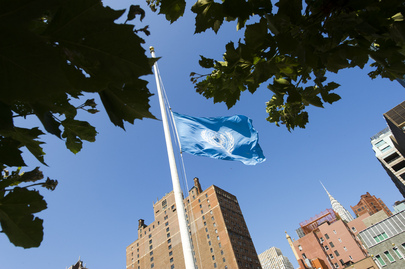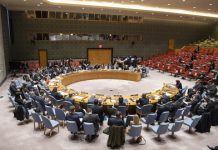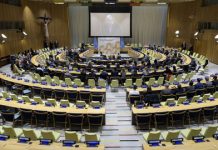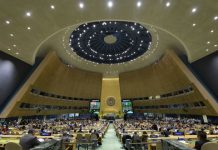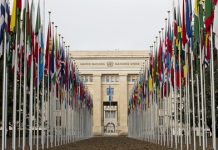World population to peak at 10.3 billion by 2080s, decline by 2100
The world’s population is expected to grow by two billion over the next 60 years and peak at around 10.3 billion in the mid-2080s.
That’s just one of the key findings from the UN World Population Prospects 2024 report published on Thursday, which says that one in four people today live in a country whose population has already peaked in size.
Right now, the population of 63 countries has already peaked and will decline by 14 per cent in the next 30 years.
That includes China, Germany, Japan and Russia.
Some 48 countries, including Brazil, Iran, Türkiye, and Vietnam, will peak between 2025 and 2054. The remaining 126 countries will grow and peak in the second half of the century. That includes India, Indonesia, Nigeria, Pakistan and the United States.
According to the study, by the end of the century, the world’s population will fall to around 10.2 billion, which is 700 million lower than expected a decade ago.
Li Junhua, Under-Secretary-General at the Department of Economic and Social Affairs which produced the report, said that lower birth rates than expected in some countries were partly responsible, along with faster declines in regions traditionally associated with high numbers of births.
Ms. Junhua insisted that although fewer people on earth will alleviate some environmental pressures, it does not mean that we should abandon sustainability goals.
Many countries – including China, Italy, the Republic of Korea and Spain – have ultra-low fertility rates of less than 1.4 live births per woman. More than 60 countries have already seen population peaks, including China and Germany, and yet more will see their own populations decline too.
On the other hand, countries including Angola and Nigeria will experience rapid growth and their population could double by 2054.
Sudan: Conflict worsens humanitarian crisis
Conflict in Sudan is intensifying in Sennar State – close to the border with Ethiopia – causing further civilian suffering and more serious rights violations, UN humanitarians have warned.
According to the UN aid coordination office, OCHA, more than 136,000 people have been displaced as clashes between the rival Sudanese Armed Forces (SAF) and Rapid Support Forces (RSF) militia spread across the state.
Civilians are facing multiple protection risks, including widespread looting. Reports indicate that the RSF has occupied Sinja Teaching Hospital, using patients and staff as human shields and disrupting medical services.
Forced displacement has spread to neighbouring states including Gedaref, Blue Nile and Kassala, where humanitarian partners are scaling up their response. But aid teams have warned that the rainy season has begun and conditions at displacement sites are dire.
OCHA is already working with state authorities and humanitarian partners to address the crisis. But it warned that the situation is getting worse as protection concerns grow, with civilians reporting looting of shops and markets, leaving them without basic needs.
Vulnerable groups especially women, children and the elderly are also at risk of violence and exploitation, while urgent action is needed to help unaccompanied and missing children, the UN agency said.
UN and partners launch $9 million response plan following Hurricane Beryl
The UN and partners have launched a $9 million response plan to provide urgent help to victims of Hurricane Beryl in the Caribbean islands.
More than 43,000 people were impacted in Grenada and Saint Vincent and the Grenadines as Beryl made landfall at the start of July. It was the strongest hurricane yet recorded so soon in the annual Atlantic Ocean storm season.
The UN’s top aid official in Barbados and the Eastern Caribbean, Simon Springett, called for swift action to “meet the pressing needs of people whose homes and livelihoods have vanished overnight”.
Hurricane Beryl struck on 1 July, causing heavy damage to buildings on several islands.
Assessing the extent of the destruction has been hindered by power cuts and downed telecommunications lines.
The UN is appealing for $5 million for Grenada and $4 million for Saint Vincent and the Grenadines to help support immediate life-saving and early recovery efforts, with providing shelter, food and healthcare as the top priorities.
Music composed and produced by Joachim Harris. All rights reserved
Source of original article: United Nations (news.un.org). Photo credit: UN. The content of this article does not necessarily reflect the views or opinion of Global Diaspora News (www.globaldiasporanews.com).
To submit your press release: (https://www.globaldiasporanews.com/pr).
To advertise on Global Diaspora News: (www.globaldiasporanews.com/ads).
Sign up to Global Diaspora News newsletter (https://www.globaldiasporanews.com/newsletter/) to start receiving updates and opportunities directly in your email inbox for free.


